Expanding foam comes out in liquid form and solidifies into a thick mass. It has an insulating and adhesive quality.
As a homeowner, you may wonder if expanding foam corrodes copper pipes. Fortunately, we have done some research for you, and here is what we found.
Expanding foam will not necessarily corrode copper pipes, so it is generally safe to use. If the copper pipes are hot, this may quickly degrade the foam, but you can use fireproof foam to offset this. What you need to worry about is hard water, which can corrode your copper pipes over time.
The expansion foam can be easily removed by sanding and scraping. Keep reading to get detailed information about expanding foam and its uses.
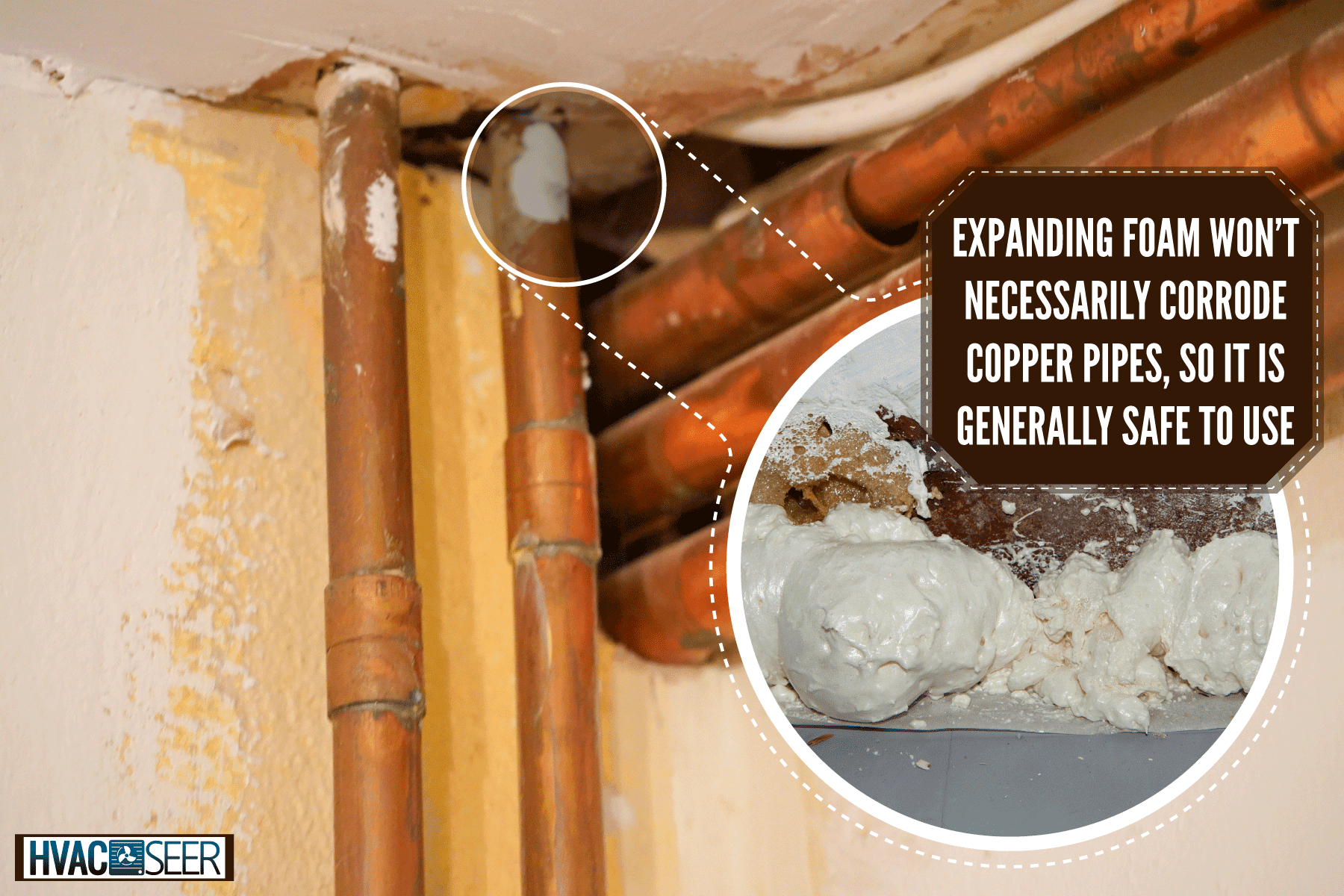
Does Expanding Foam Corrode Copper Pipes?
Copper pipes are mostly made of pure copper, which can corrode when a corrosive agent or the wrong substance is left on it for an extended period. Expanding foam does not necessarily corrode copper pipes.
In fact, copper pipes, specifically hot ones, are the ones that have adverse effects on expanding foam, as they are easily degraded by heat.
The agent that oxidizes copper pipes is water—more specifically, hard water or water with a concentration of metal particles and minerals like iron and calcium.
Over time, these materials rub against the lining of the pipes and slowly wear them out.
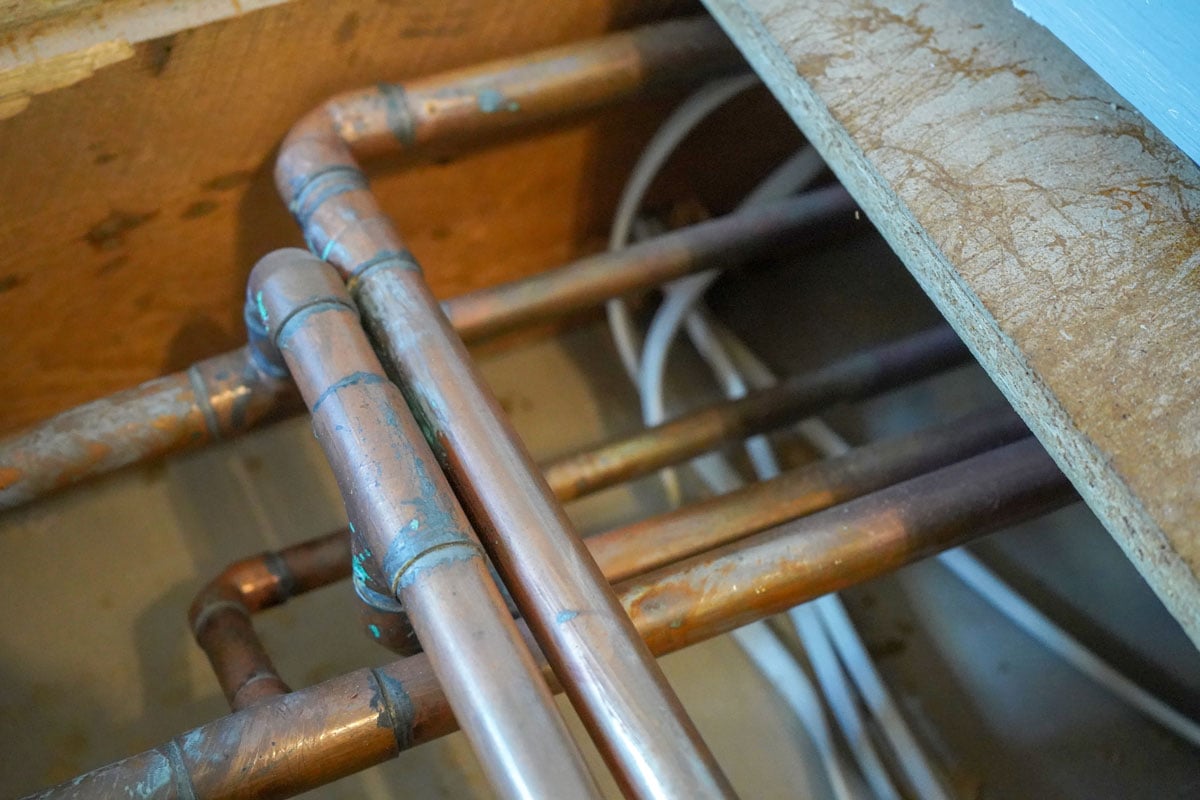
There is also open-cell expanding foam that contains water with porous properties that allow it to absorb and retain moisture, which in turn causes oxidation and corrosion on copper pipes.
The open-cell expanding foam will corrode your copper pipes after it has been applied for some time. The pipe may start rusting where the foam was applied a few days after application.
After a few weeks or months, the pipe would have been significantly damaged by the corrosive effect of the water in the expanding pipe.
If you use the open-cell expanding foam, changing and reapplying it occasionally is recommended to avoid more costly damage to your water pipes.
All of these are more exaggerated when moisture comes into play. Moisture can speed up the corrosion of your pipes, primarily if they are not maintained.
Because of this, some would even recommend that you not insulate your pipes at all, as this would not be needed as long as they are correctly installed.
What Is Expanding Foam?
Expanding foam is an insulation agent to fix and cover up holes and cracks. It can also be applied to keep holes covered or merge two pipe parts.
There are different types of expanding foam. The most common and cheapest one is the open-cell insulation spray foam.
When this type thickens up, it has tiny pores around it, allowing water to pass through. Also, the sponge-like foam stores the water within its pores and remains moist, even days and weeks after it is used on the pipe.
Expanding foam should be applied with sufficient ventilation and protection. The spray foam vapor produces chemicals that can cause rashes, asthma, eye irritation, and itching.
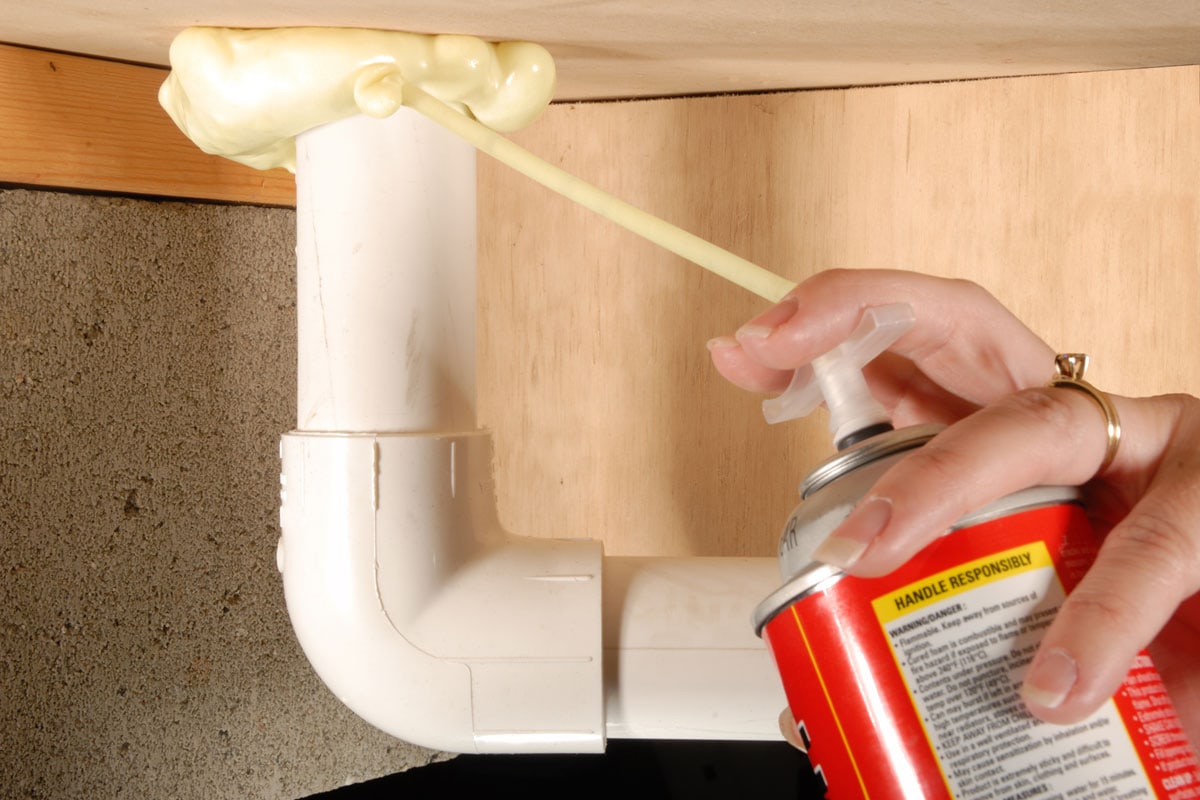
What Dissolves Cured Expanding Foam?
To remove cured or dried expanding foam, you can apply a dissolving solution such as acetone, which will break down the solidified substance after application.
Acetone is an excellent dissolving solution and can break down cured insulation foams for easy removal. It can be bought at stores for home/domestic products or online.
Check out these acetone solutions on Amazon.
How Do You Remove Cured Expanding Foam From Pipes?
If the expanding foam you applied to your copper water pipe is the open cell type, you can either choose to remove and reapply the same expanding foam at bi-daily intervals or remove and reapply a different insulating material on it.
Either way, you must know how to remove the expanding foam from your pipe. Removing the expanding form from copper pipes is not a challenging task.
Below are the simple steps you can follow to effectively remove insulation foams from your copper pipes:
Scrape The Foam Using Knife
You can scrape the expanding foam off using a knife or cutter. In this case, make sure that your cutter is close to the pipe but not close enough to cause damage so you can remove as much foam chunk as possible.
After this, you will still be left with some foam that you must remove to avoid corrosion.
Clean With Acetone
To remove the remaining expanding foam from your pipes, you need acetone. A quick fix will be to dip a small cloth into acetone and clean the entire area where the foam is present.
Clean the acetone residue using a soft cloth and water. Make sure to remove all the remaining expanding foam before using the water.
You should note that if the foam isn't completely removed before reapplication, your pipe may corrode, so make sure that you clean it thoroughly. This process may take a lot of time.
Does Expanding Foam Cause Damage To Wiring?
Expanding foam can cause damage to electrical wiring. Expanding foam is an insulating material that covers unwanted openings and keeps the heat contained.
If the electric wiring is filled with expanding foam, it can clog up its access to air and store in the heat, causing overheating and damage to the wiring.
You can evade this by mapping out the area you want the expanding foam to cover and carefully applying the foam so that it does not overfill the opening.
When wiring is sized and housed well, no temperature issue will arise when applying spray foam.
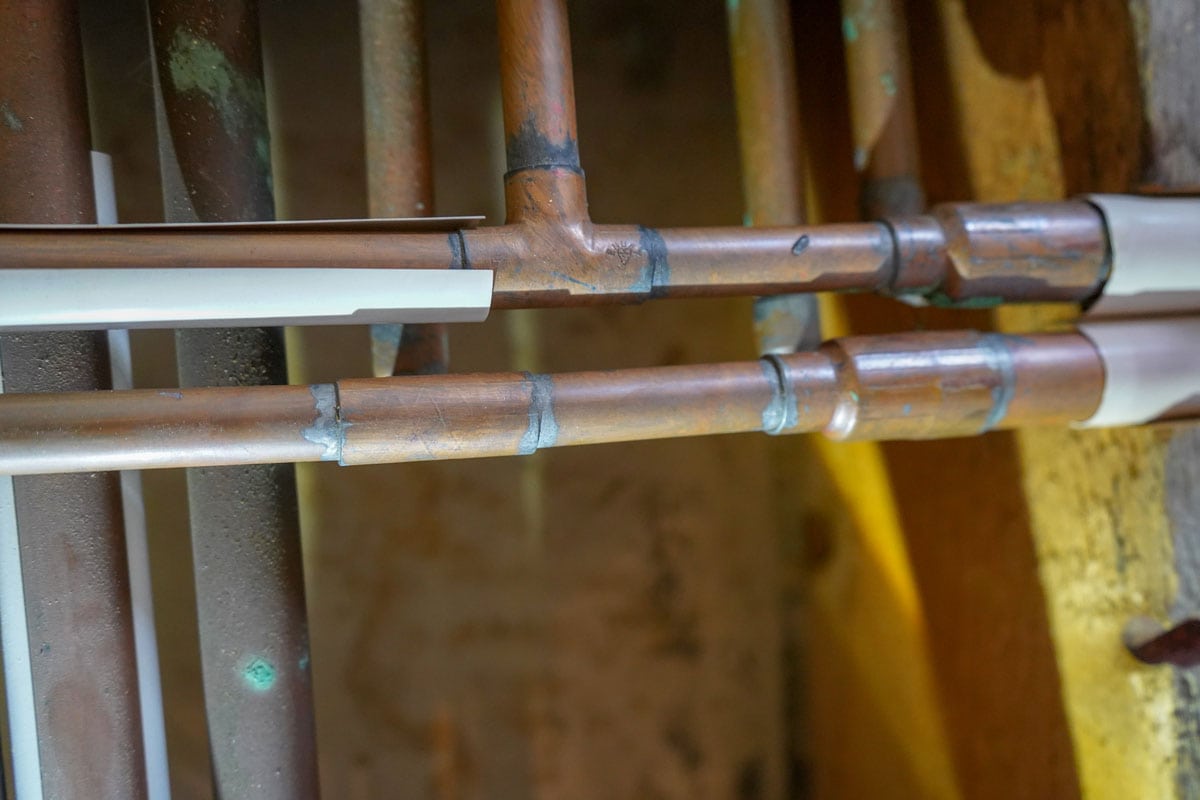
Can You Put Expanding Foam Around Sockets?
You can apply your expanding foam around sockets, but you must be very cautious when doing so. Precautions include ensuring that the insulation foam is uniquely made and can be used around electrical outlets.
As you spray your expanding foam around your sockets, be careful with electrical wirings and avoid getting sprayed in the sockets.
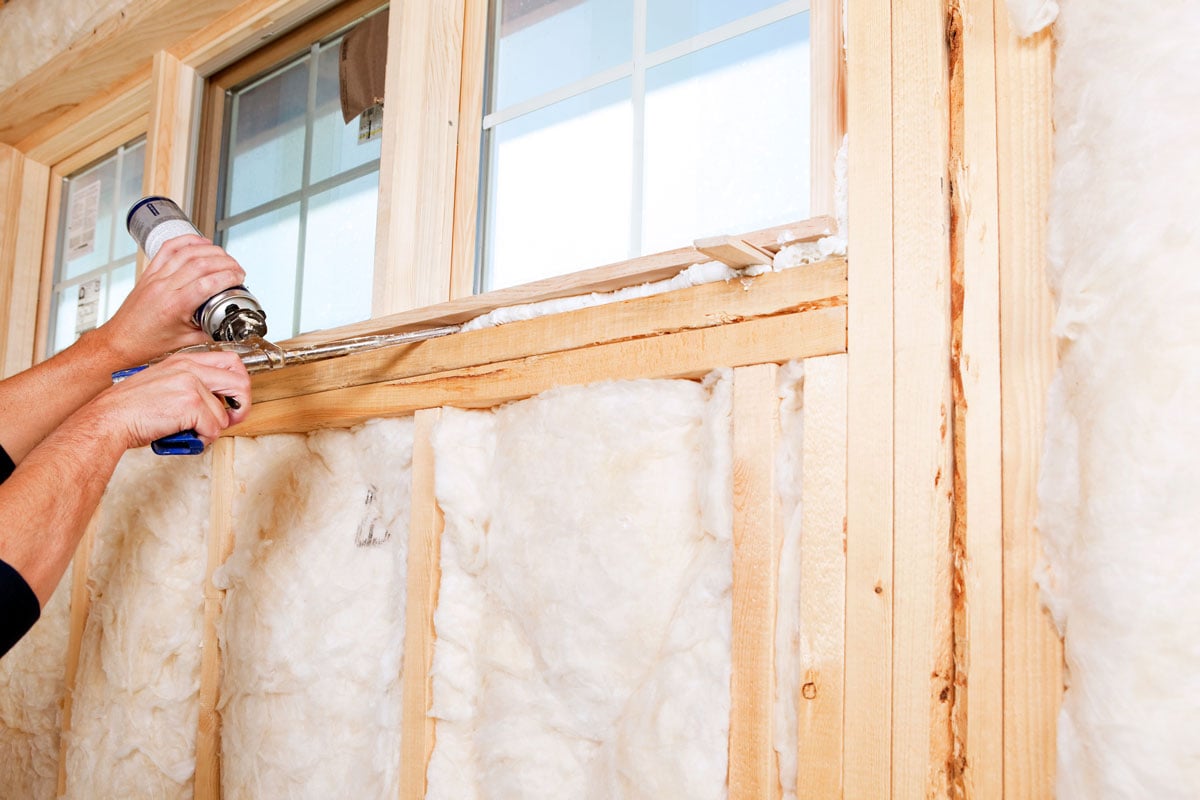
Is Expanding Foam Waterproof?
Some expanding foams are waterproof, while others are not. An open-cell insulation foam spray will have tiny pores when cured, allowing for water passage.
Therefore, it is not waterproof. This type of insulation foam can be used in dry areas but not wet areas.
A closed-cell insulation foam spray will have no pores when cured, so it resists the entrance of water and is waterproof.
This type is more expensive than the open-cell form and can be applied to any unwanted, wet, or dry opening.
How Long Does Expanding Foam Last On Pipes?

With a high-quality expanding foam like the closed-cell type, you can be assured of years of insulation because the foam is made of solid and durable materials that can withstand wear for a very long period.
Spray foam insulation lasts longer than fiberglass insulation panels and other types of insulation. It doesn't break down gradually, so it will not contaminate the air and make it poisonous.
Do Mice Eat Expanding Foam?
Expanding foam can also be a form of defense against mice infestation in your house. Mice can't feed on expanding foam but are not impervious to penetration.
This will mostly depend on the brand you use, but mice will not try to go through it most of the time.
Spray foam is known to be a high-quality home-insulating product.
If you want to install spray foam insulation in areas like the attic, you will benefit from upgraded insulation, high moisture control, and good indoor comfort.
You will also get a well-sealed space that keeps mice out. It is better to consult professionals for installation to have good, long-term results.
To Wrap Up
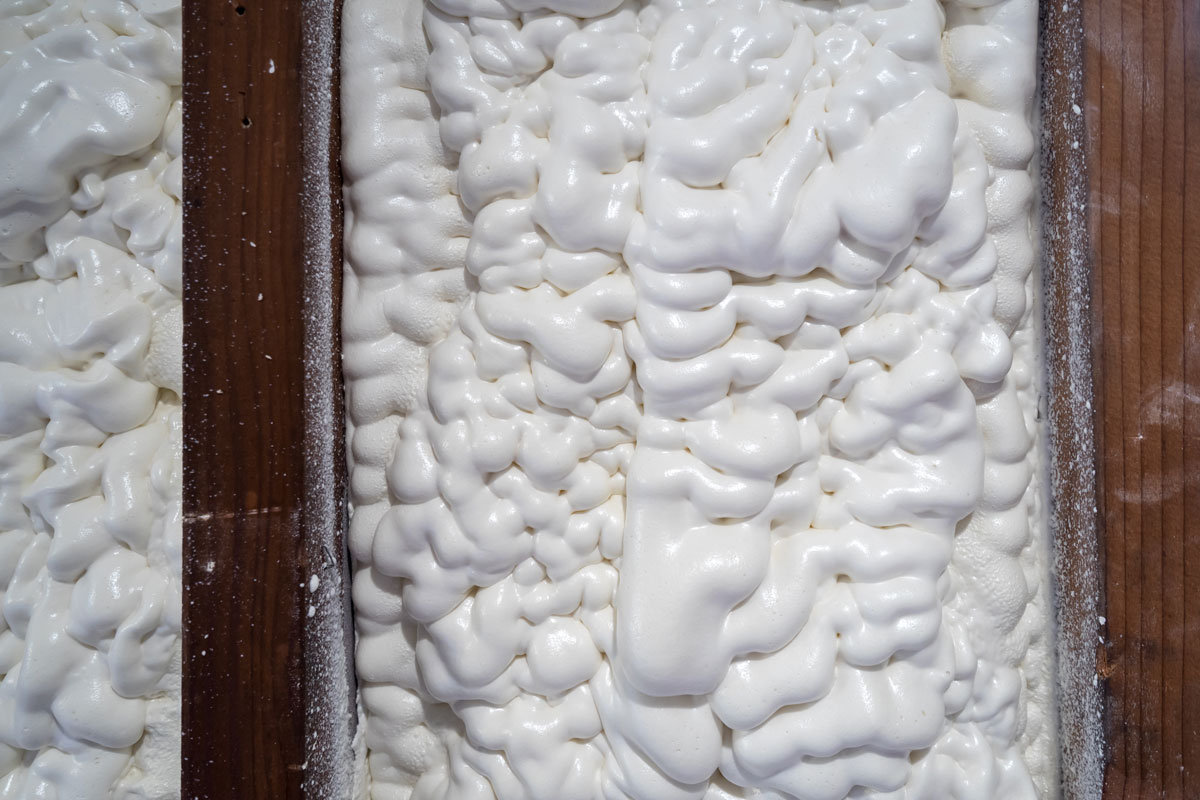
An expanding foam on a copper pipe may cause corrosion. Non-water-resistant expanding foams can let water sip through and damage your copper pipes.
Therefore, you should consider many factors before going for a particular type of expanding foam to avoid damage.
Closed-cell insulation foam spray is waterproof and keeps heat in and out of a building. Also, it is recommended to consult a professional for installation.
If you enjoyed this post, here are similar articles you may like:
How Long Does Spray Foam Insulation Smell?

